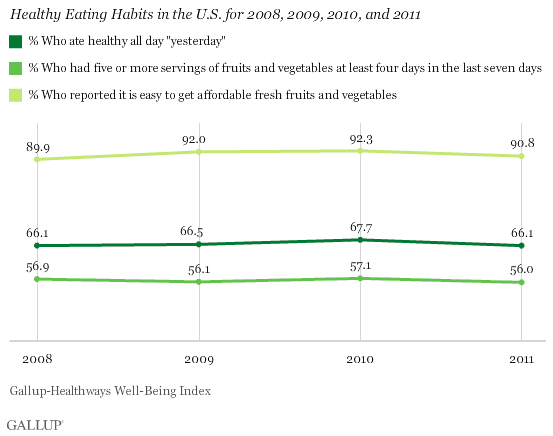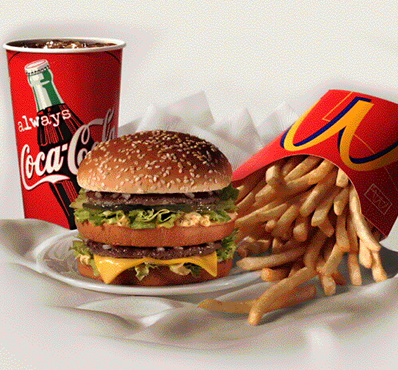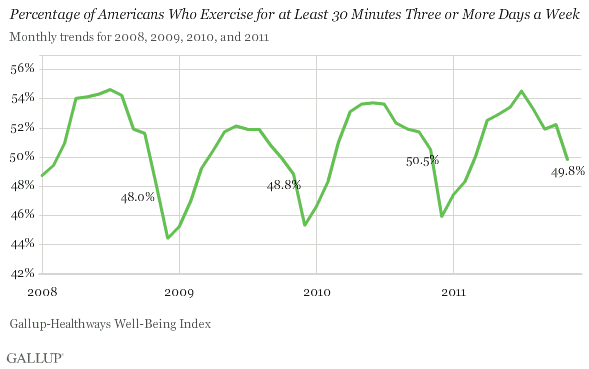Fewer Americans Eating Healthy in 2011
Posted on
Americans’ self-reported healthy eating habits dipped slightly in 2011, after improving in 2010. The percentage of Americans reporting they ate healthy all day “yesterday” declined to 66.1% in 2011 from 67.7% in 2010. Likewise, 56.0% of Americans reported eating five or more servings of fresh fruits and vegetables on at least four days in the previous week last year, down from 57.1% in 2010. As a result, the gains observed from 2009 to 2010 were essentially undone last year.
This is not good news.
Come on folks, spend a little time in preparing an appropriate, nutritional diet and exercise a little bit.
It is for better health!
Healthy eating can help reduce people’s risk for heart disease, high blood pressure, diabetes, osteoporosis, and several types of cancer, as well as help them maintain a healthy body weight. Good eating habits mean consuming various nutritious foods and beverages, especially vegetables, fruits, and low-fat and fat-free dairy products; limiting intake of saturated fats, added sugars, and sodium; and balancing caloric intake with calories burned to manage body weight.





